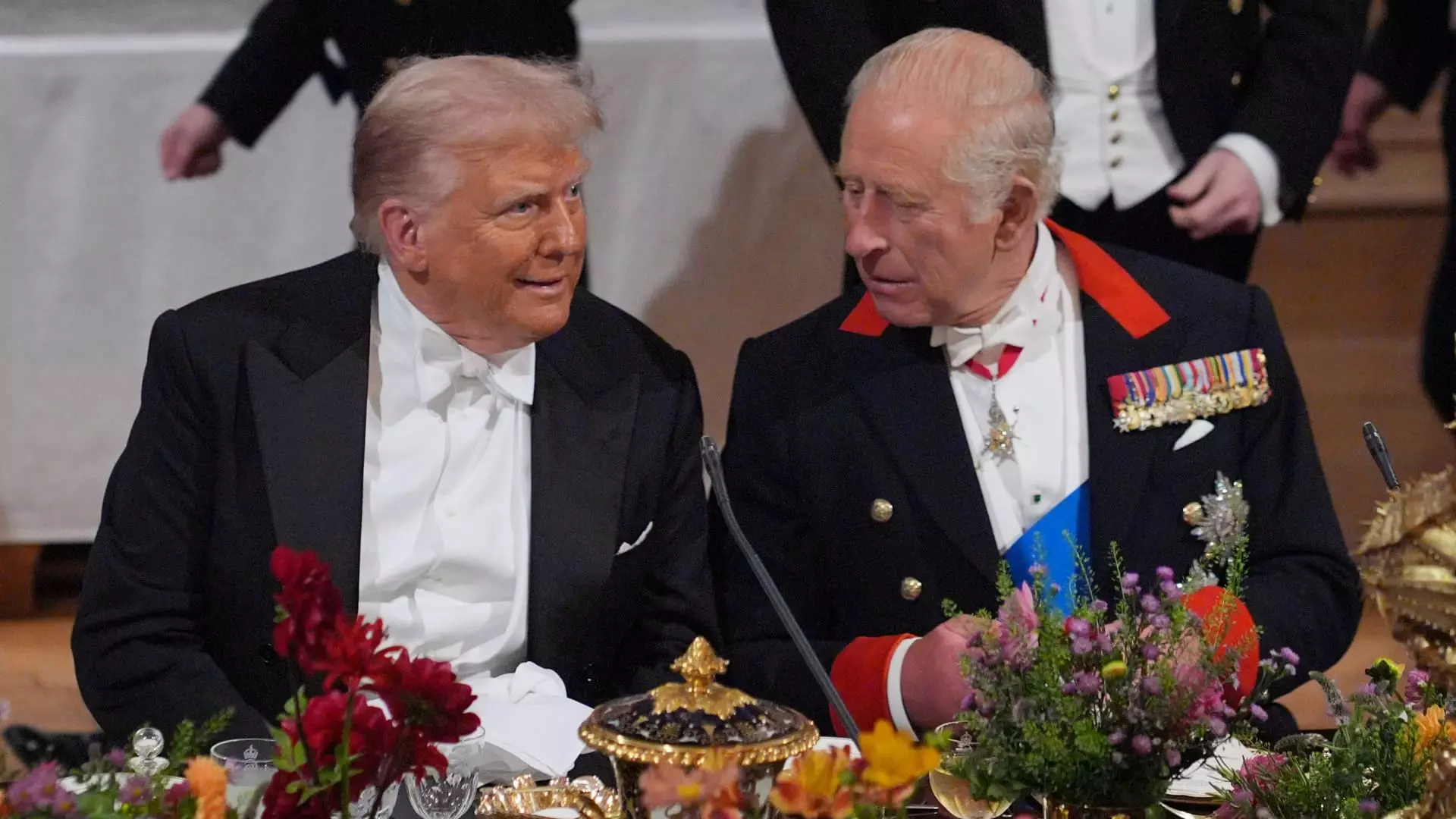When a world leader visits a foreign nation, the spectacle of pomp, tradition, and ceremonies often overshadow the substantive political discussions underneath. The recent U.S. president’s so-called historic state visit to the UK exemplifies this paradox—where glittering royal events and formalities serve more as theatrical displays than genuine diplomatic breakthroughs. While pictures of gun salutes and royal procession evoke national pride, they obscure the underlying tensions and unfulfilled promises that define such visits. These ceremonies have long been used as stagecraft, masking the often conflicting interests and superficial commitments that underpin international alliances. The true test of diplomacy lies beneath the grandeur, in whether these displays translate into meaningful policy change or reinforce superficial loyalty.
Symbolism Over Substance: The Trade Deal and Hidden Ambitions
The centerpiece of this visit, the so-called “economic prosperity deal,” appears to be another chapter in the ongoing saga of post-Brexit economic realignment. Yet, this grand announcement of a £150 billion investment, while lauded as a triumph, raises questions about its actual impact. Are these investments genuine commitments to bolster the UK’s economy, or are they window dressing to bolster a political narrative? It’s unlikely that these multi-billion-pound deals will significantly alter the day-to-day realities of working-class Britons, who face austerity and economic insecurity. Instead, they serve as symbols of the UK’s desperate effort to claim a new global role, even if the practical benefits remain ambiguous. From a centrist liberal perspective, this represents a pragmatic approach—recognizing the importance of economic ties, but remaining wary of overpromising and underdelivering.
Diplomacy or Self-Promotion? The Image-Driven Politics of State Visits
What does it say about global diplomacy when the main headline is the leader’s personal enjoyment of pomp and ceremony? President Trump’s affection for the royal spectacle—jokes about being the only president to have two state visits—highlight how ego and image play a significant role in international relations. These rituals serve a purpose—not in advancing concrete policies but in projecting strength and legacy. Meanwhile, the real issues, such as the 25% tariffs on steel and aluminum, remain unresolved, hidden behind the veneer of friendly握hands and diplomatic banter. From a pragmatic liberal perspective, this highlights a flawed priority: investing more in optics than in effective international cooperation, especially on conflicts like Ukraine and in the Middle East, which demand serious diplomatic engagement rather than photo ops.
Is This the Future of Global Politics? Empty Rituals or Real Change?
The cultural spectacle surrounding the visit—pomp, royal gun salutes, and high-profile dinners—are designed to impress and distract. Such displays, however, do little to address the pressing issues at hand, from escalating conflicts to economic disparities. For a center-leaning liberal, this spectacle underscores the danger of allowing diplomatic engagements to become a form of performative politics. Real progress requires honest, sometimes difficult conversations—not staged ceremonies. Encouragingly, the UK’s strategic efforts to appear as a global player and the U.S. president’s desire to leave a legacy suggest that, beneath the surface, both nations are aware of the superficiality. Yet, their willingness to indulge in theatrical diplomacy signals a continued preference for optics over outcomes—a pattern that risks undermining genuine international cooperation in favor of national egos and political theatre.
A Cautionary Reflection on Power and Politics
In the grand scheme, state visits like these reveal how superficial gestures often carry more weight than substantive negotiations. Leaders use ceremonies to bolster geopolitics, but these rituals may serve to reinforce national identities and personal legacies more than to solve critical global issues. For those committed to a center-left liberal agenda, this reality is troubling. It underscores the importance of demanding accountability and emphasizing the importance of policy over pageantry. If diplomacy is to be truly meaningful, it must transcend superficial showcases and confront the realities of inequality, conflict, and economic insecurity with honesty and purpose—not just with the flourish of ceremonial grandeur.


Leave a Reply